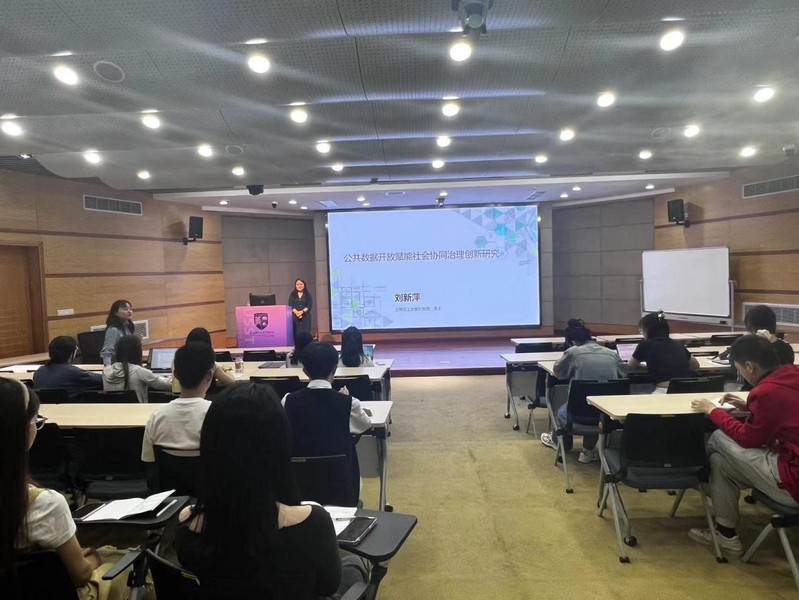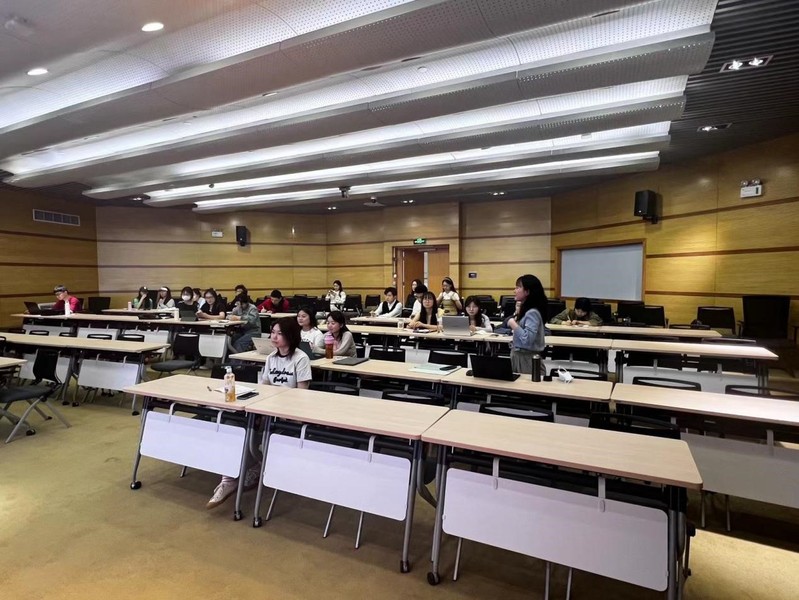On May 13, The Hujiang Economics and Management Forum Series (108th Session) was held in the second conference room on the fourth floor of the Economic and Management Building. Associate Professor Liu Xinping from the Department of Public Administration delivered an academic report entitled Research on the Empowerment of Social Collaborative Innovation through the Opening of Public Data.
At the beginning of the lecture, Professor Liu introduced the significance and value of the opening of public data to social collaborative innovation. She pointed out that the opening of public data is not only essential for the modernization of government governance but also a critical element in promoting joint participation, resource sharing, and collaborative innovation across various sectors of society. By citing examples of open data applications from both domestic and international sources, she emphasized the importance of open data in empowering collaborative innovation in social governance and the research topics of this report.
During the lecture, Professor Liu adopted a timeline approach to interpret policy documents related to data openness from recent years. Although the government has achieved certain successes in the opening of public data, there are still many challenges and difficulties in practice. Following this, Professor Liu explained the concept of open data in a clear and simple manner and analyzed its unique value in promoting multi-party participation and driving innovative development. In the analysis of traditional public service delivery models, she highlighted issues that exists in the traditional public service supply, such as a single provider, excessive government burden, and a lack of precision in delivery outcomes. Through the opening of public data, she argued, it is possible to restructure and optimize the service delivery framework subsequently, Professor Liu used social government theory to construct a collaborative public service delivery model through public creativity, analyzing the relationship between the opening of public data and social collaborative innovation, and provided new ideas and methods for policy innovation.
Finally, Assistant Professor Zhang Yimeng from the Department of Public Administration commented on the lecture. She noted that the report analyzed the models and multiple cases of social collaborative innovation empowered by the opening of public data, which could provoke students' thoughts on digital governance and provide them with relevant cases and ideas for their own research directions.


Translated by Liu Xinping
Reviewed by Fang Zhiming


